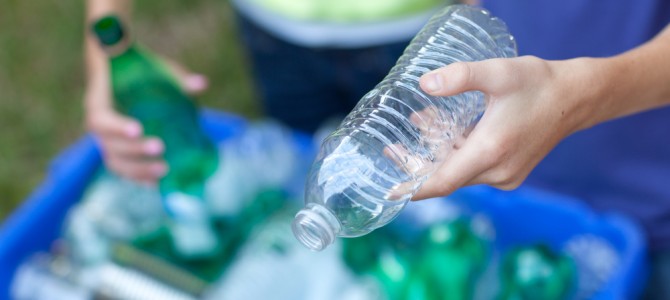The secret is out: recycling isn’t working, because it was never really supposed to.
The Washington Post reported that more recycling companies, including Waste Management, are turning away from recycling, as the enterprise has ‘become’ totally unprofitable. They place the blame on the (well-meaning) masses who acted like apes when they were given larger recycling bins.
By pushing to increase recycling rates with bigger and bigger bins — while demanding almost no sorting by consumers — the recycling stream has become increasingly polluted and less valuable, imperiling the economics of the whole system. . . Residents have also begun experimenting, perhaps with good intentions, tossing into recycling bins almost anything rubber, metal or plastic: garden hoses, clothes hangers, shopping bags, shoes, Christmas lights. That was exactly the case last year, when the District replaced residents’ 32-gallon bins with ones that are 50 percent larger.
While many are throwing shade at those big glue bins, the truth is, much of consumer recycling has been a waste of time all along. The article goes onto explain that glass probably shouldn’t have ever been recycled. It’s heavy and breaks easily, contaminating the rest of the materials in the pile. Most of it has no value, and often costs money to haul away. The stuff that is valuable is “trucked to landfills as daily cover to bury the smell and trap gases.”
So basically all the time my mom spent fishing glass bottles out of the garbage and washing them so they would be good enough for the recycling companies to reuse, she was actually just providing a covering to trap garbage odors into the ground.
Don’t get me wrong, not all recycling is bad. Manufacturers for years have been taking their scrap materials to get reused in exchange for cash. Typically, they sort it out by type, and will sometimes process it a bit themselves before delivering it to the recycling plant or arranging it to be picked up. Not only is this practice eco-friendly, as it cuts down on waste, but there is a clear economic incentive to continue doing so, for both parties involved. However, implementing a consumer recycling program en masse has caused serious problems, not to mention decreased its value.
Lawmakers have spent countless tax dollars trying to implement recycling programs, and educate the public on them. Recently, a California city has decided to hire three full time ‘trash cops,’ to make sure that scavengers don’t make a mess when they dumpster dive for bottles and cans. Meanwhile over 2,000 cities are currently paying companies to take the recycled goods to the landfill, as there is a shrinking demand for them.
When will they finally see that it was never really worth it? When will this charade end?
Objectivist economist Richard Salsman summed up the problem rather well when he said:
“People who recycle should be ashamed of themselves for acting like scavengers when so much is possible to them under capitalism.”
Allow me to borrow words from my colleague Robert Tracinski to explain:
“Recycling” is meant to conflate two things that used to have separate words: “salvage” and “scavenging.” Salvage is what you do with things that have real economic value, like melting down old cars, or saving the gold when a dentist removes an old filling, or saving the fancy woodwork from an old house. Scavenging is what you do when something doesn’t have any real economic value, but you’re poor and you have no better option than to collect discarded aluminum cans or scraps of paper. “Recycling” is intended to make us all do the latter under the pretense of doing the former.
Pushing the masses to participate in recycling on a large scale is training them to over value worthless trash. Progressive lawmakers have been pushing citizens into a deranged fantasy, and using taxpayer dollars to do it.
As evidenced by the Christmas lights and shoes tossed in the recycling bins, people think their garbage ought to be worth something. Many people, like my parents, used their recycling bins as an outlet for wishful thinking, but wanting castoff glass materials to have value doesn’t make it so. The big blue recycling bins should serve as a lesson to us all: don’t get duped into behaving like a scavenger.









